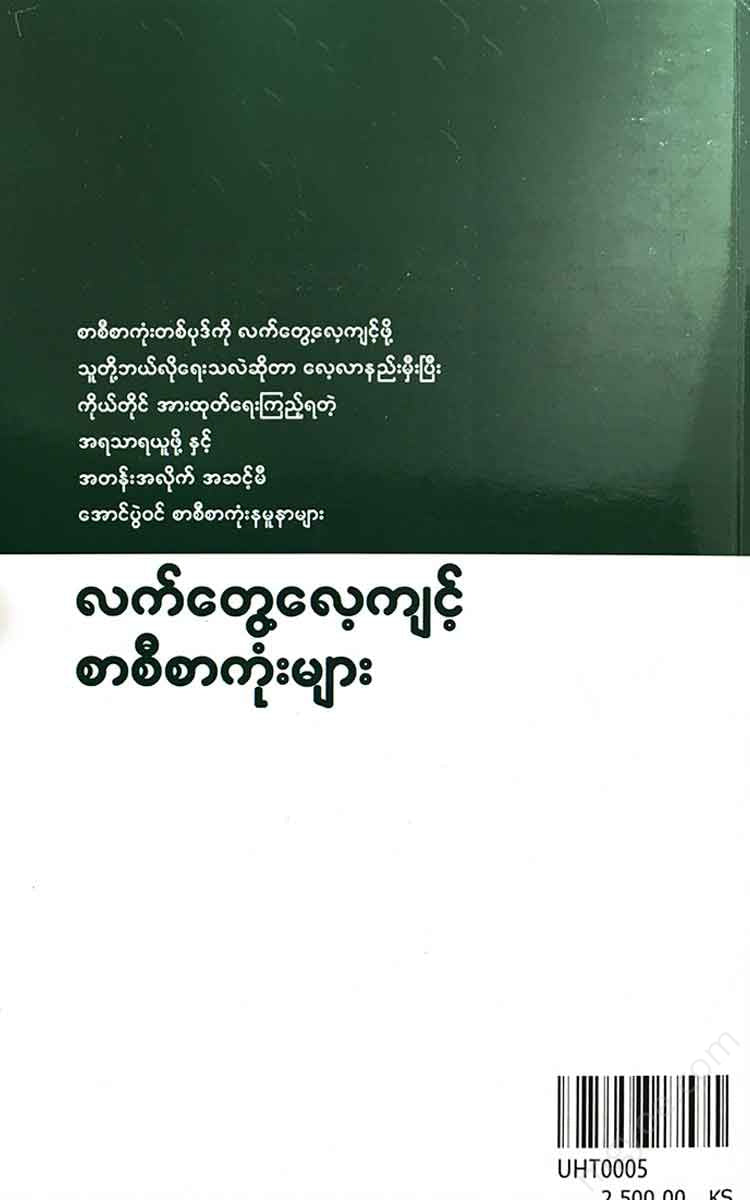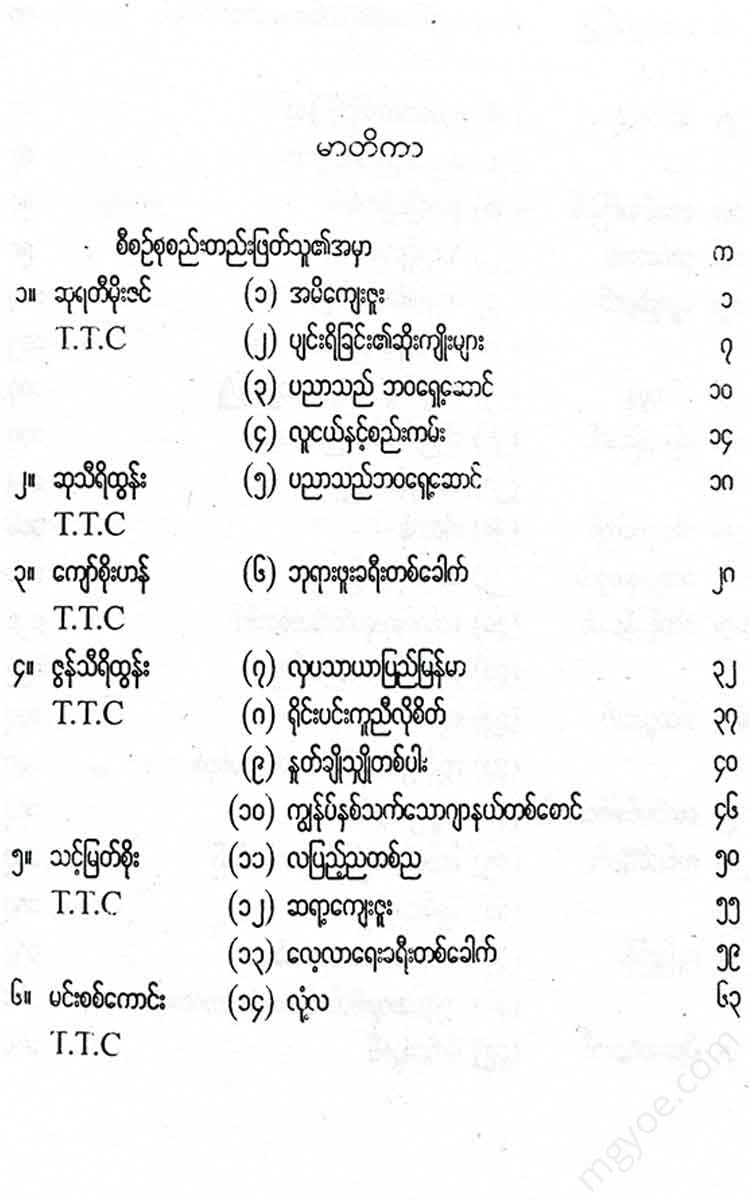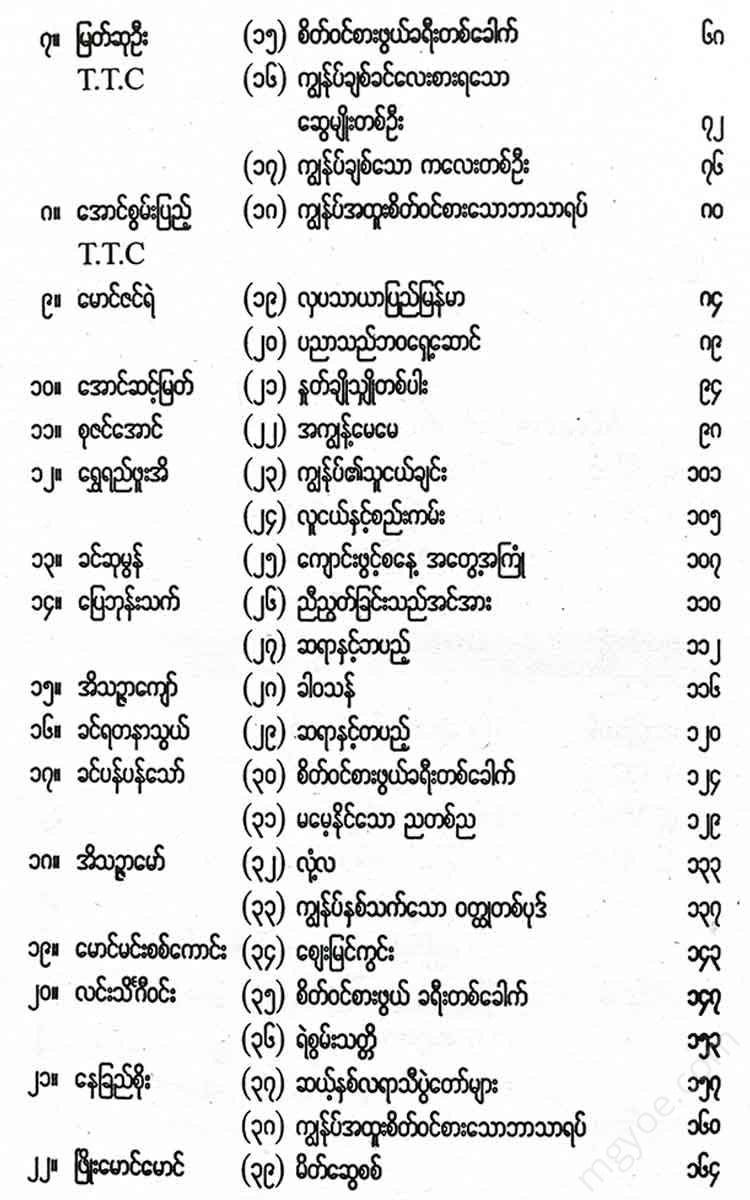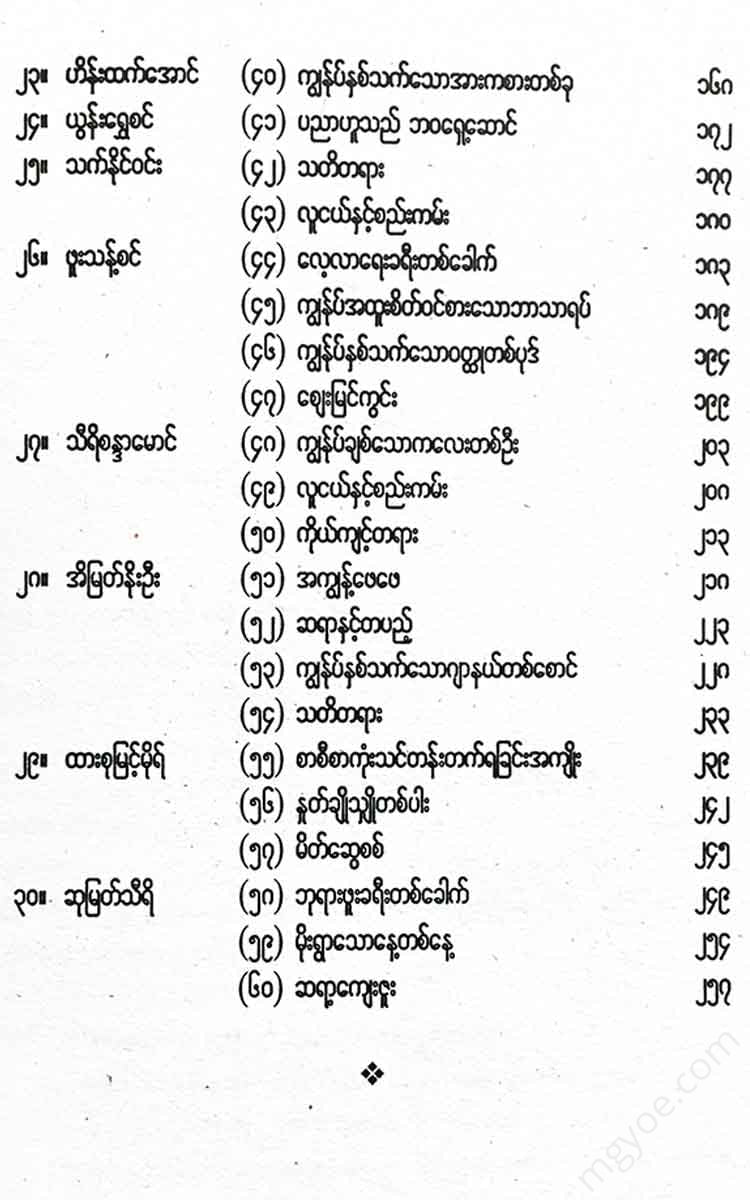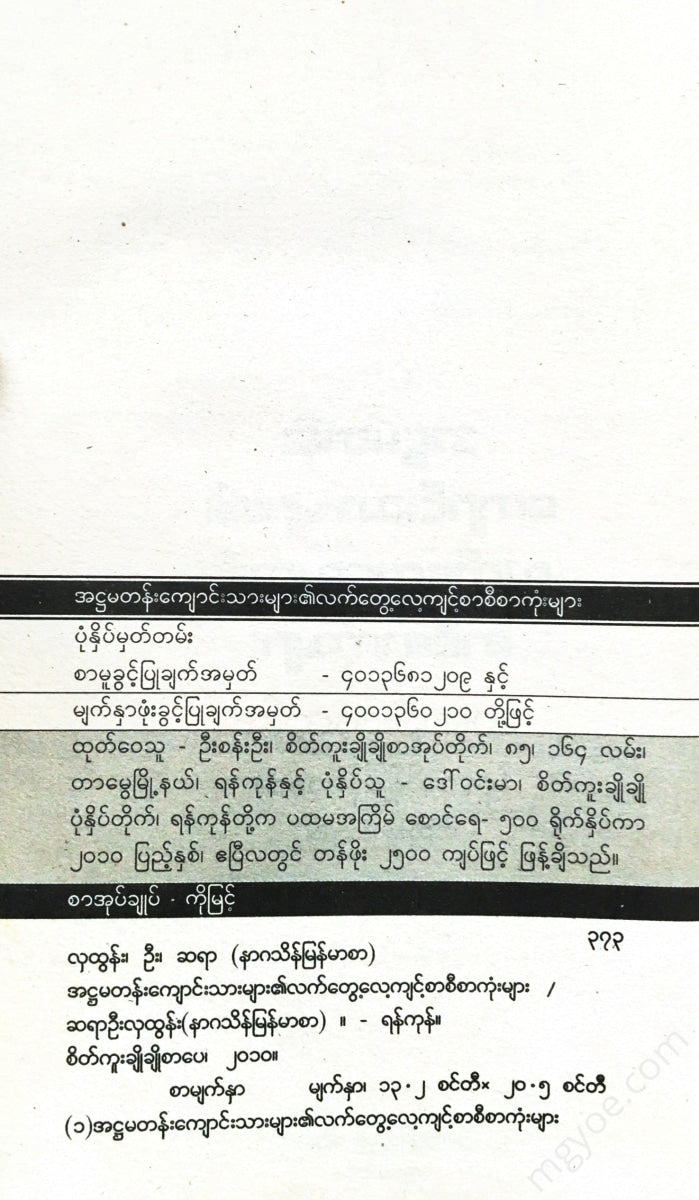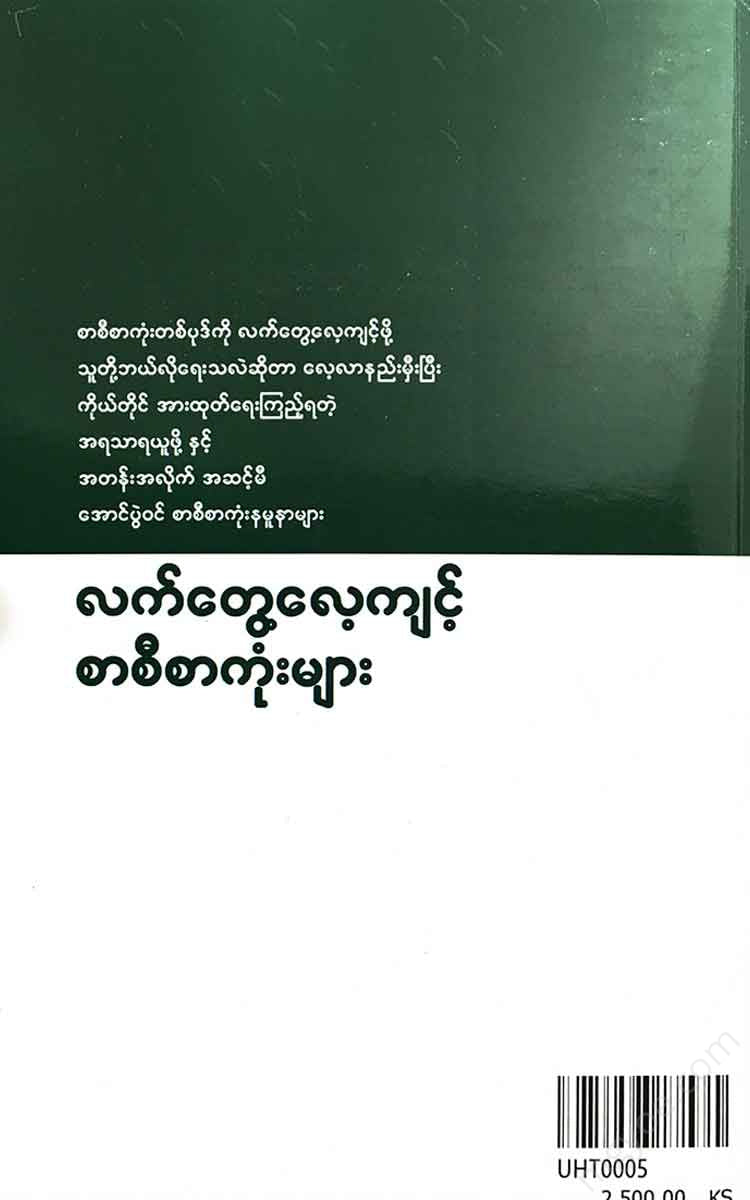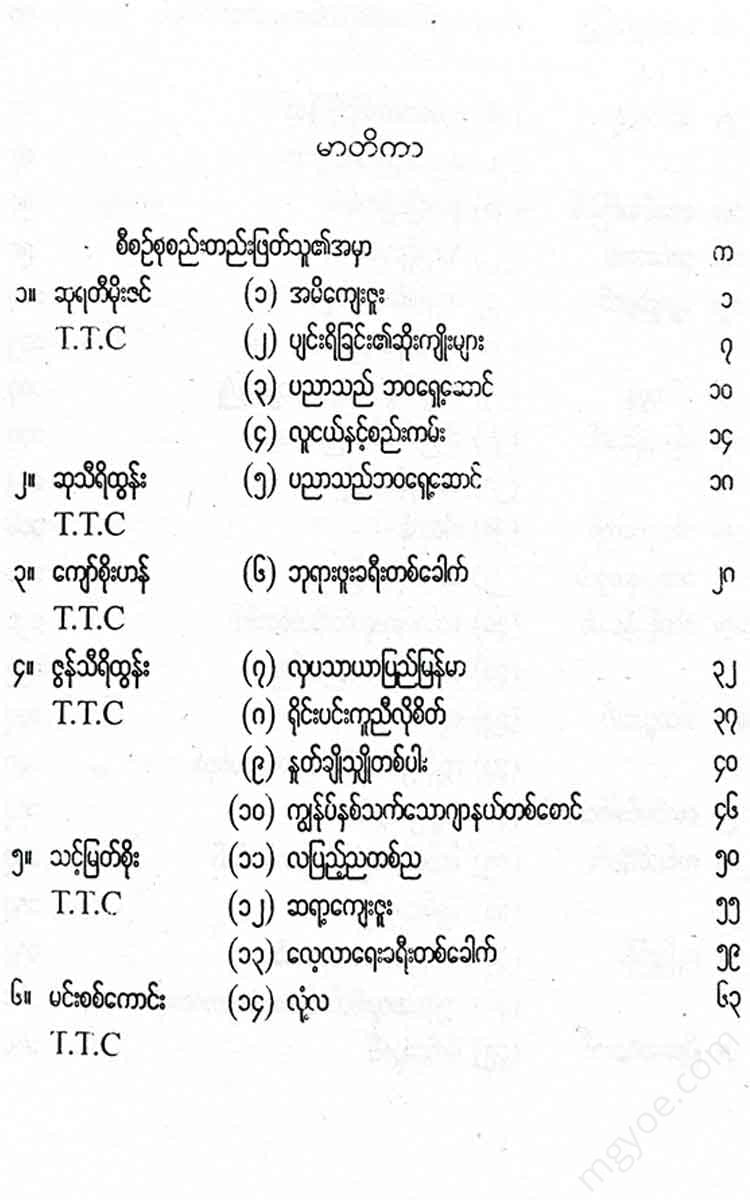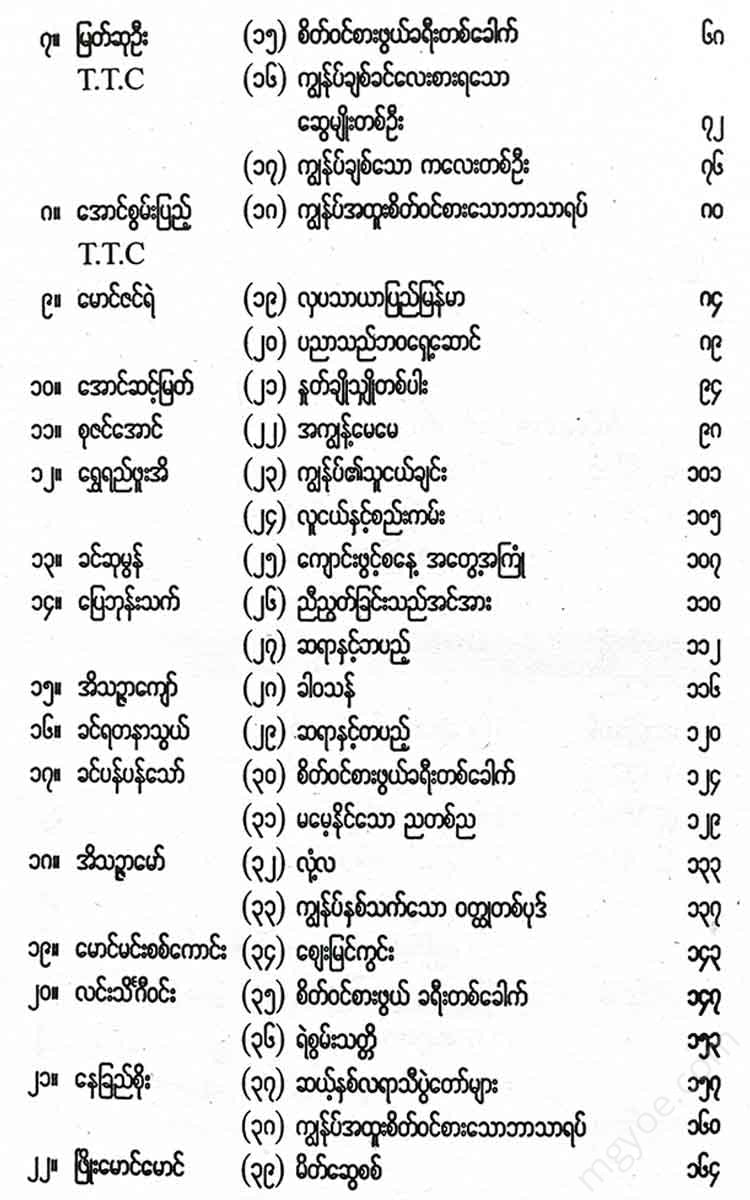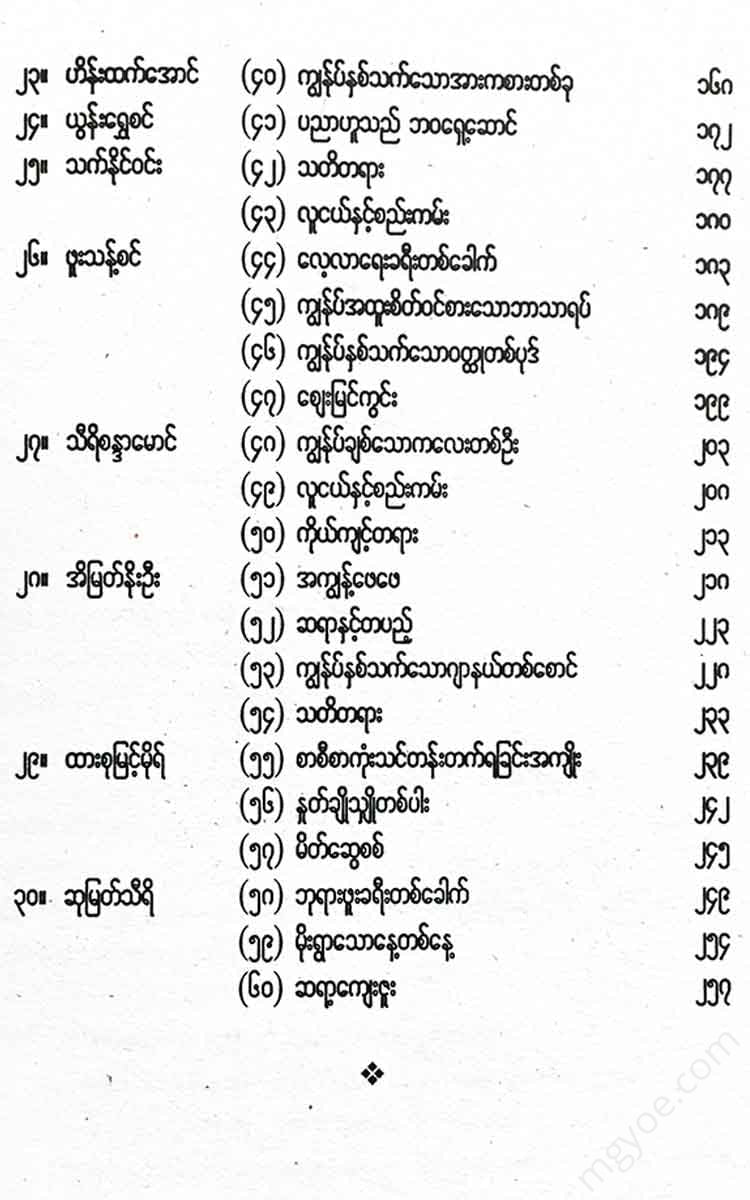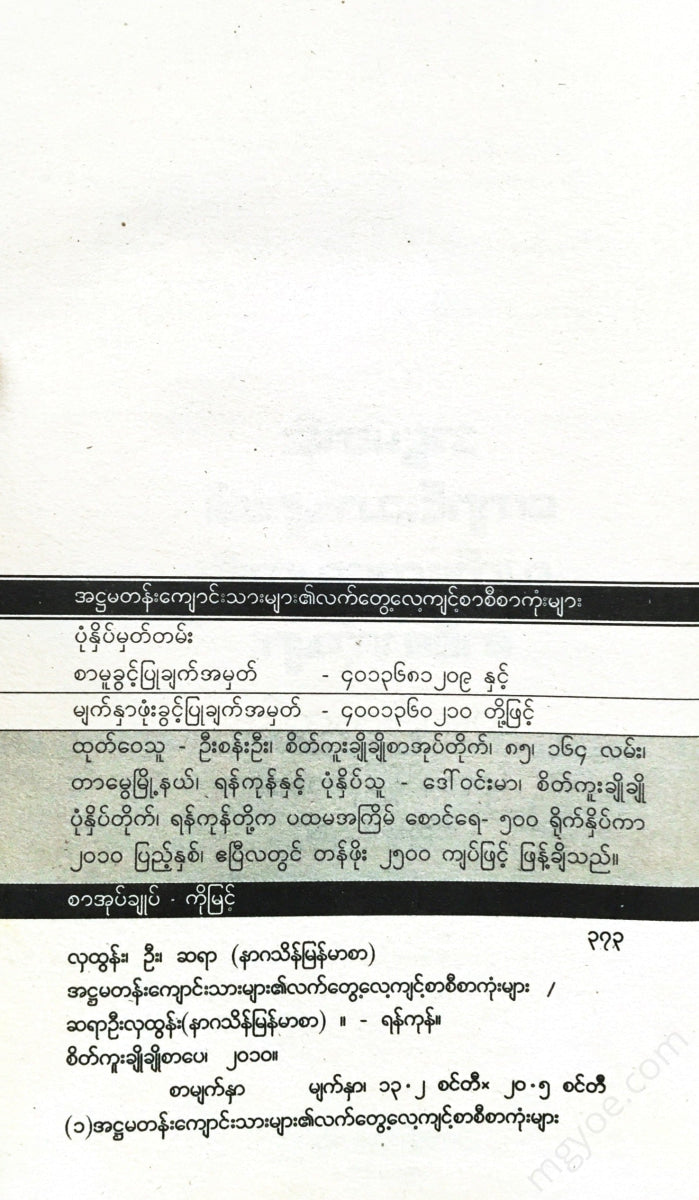စိတ်ကူးချိုချိုစာပေ
Teacher U Hla Htun (Naga Thein Myanmar) - Grade 8 Practical Practice Essays
Teacher U Hla Htun (Naga Thein Myanmar) - Grade 8 Practical Practice Essays
Couldn't load pickup availability
Students
How to read and study an essay
Order
(1) - Essays are divided into (4) types according to the writing style.
These are..........
1- Descriptive writing essay,
2- Essay on the event,
3- Explanation and explanation.
4- Reasoning essays.
(2) - As there are (4) different types of essays according to the writing style, each essay writing style is different from the other. It is necessary to distinguish the different writing styles according to the type of essay. In order to distinguish this, we will describe the reading and study methods according to the writing style.
(3) - Perspectives on studying descriptive writing -
Descriptive writing is a method of writing that describes in detail the appearance, color, and sound of objects so that the reader can see them in their mind's eye and hear them in their mind's ear. Descriptive writing can be written to describe not only the appearance and sound, but also the smell, taste, and touch so that the reader can smell them, taste them, and feel them.
When reading and studying descriptive essays written by students, the descriptive writing techniques include (1) using adjectives that describe nouns, (2) using verbs that describe verbs, and (3) using descriptive words that are appropriate to the content being described.
(4) The use of figurative language, which is a decorative and descriptive composition, and (5) The use of expressions that express the author's opinion, criticism, and feelings about the subject being described. By analyzing this distinction, we can see the appropriate writing style for the descriptive style.
(4) - Perspectives on the study of narrative writing
The chronological approach is a method of writing a story or a narrative in a sequence of events (or time) in which events develop in a sequence of events.
The duration of an event can vary from hour to hour, from day to day, from month to month, from year to year, from lifetime to lifetime, etc. In any case, if you can describe the event in a coherent way from beginning to end, you will have completed an event essay.
A narrative essay, like a descriptive essay, is about describing the appearance of living things. However, it is more important to describe how they happen and move than to describe them in a visual way.
When studying a narrative essay, we must consider (1) whether the sequence of events and the movement of characters can be clearly described; (2) whether the timing and logic of the narrative are important. Timing refers to whether the events occur in a sequence. Logic refers to whether the events occur in a sequence and are logically related to each other; and (3) whether the events occur in a sequence and are connected at the end.
(5) - Perspectives on how to write an expository essay
An expository essay is a writing style that explains a topic in detail so that readers can understand (or act upon) it.
When studying how to write an expository essay, you should look at (1) whether the introductory paragraph summarizes and clarifies the essay's topic, (2) whether it provides a clear introduction to the topic, and (3) whether it is written in a way that will make the reader interested and want to continue reading just by reading the introduction.
When studying the expository essay, the following aspects should be considered: (1) whether the author can explain the topic in detail, (2) whether the author can compare and contrast the similarities and differences in the topic, (3) whether the author can provide examples in the topic, (4) whether the author can classify the topic, (5) whether the author can cite the statements of scholars in the topic, and (6) whether the author can write about personal experiences in the topic.
In concluding an expository essay, you should (1) restate the sentence you opened in the introduction and conclude it in the conclusion, (2) conclude with a short poem or song related to the topic, (3) summarize the points mentioned in the body and conclude, (4) conclude by citing a statement from an expert on the topic and quoting it, and (5) conclude by expressing your own thoughts, feelings, or lesson suggestions about the topic.
(6) ~ A perspective on studying how to write an argumentative essay.
An argumentative essay is a way of writing that uses a reasoned argument to convince the reader that a particular topic (or proposition) is beneficial because of this.
Reasoning is a step up from explanation. Explanation involves explaining something clearly so that the reader can understand it. Reasoning involves not only understanding it but also relating it to make it believable. It is important to be logical and reasonable in order to make the reader believe it.
In reasoning, (1) examine the specific facts in detail and then organize them into a general idea, (2) use the general idea to justify the existence of a specific specific idea, (3) compare the similarities between two different things, present them in a logical manner, and write persuasively to support your point of view, (4) use strong evidence,
It should be studied and analyzed in the sense of presenting the reasons and effects by giving examples, and (5) presenting the reasons and effects sufficiently so that the reader can accept that such effects arise because of the said reasons.
In this way, if students use reading and study methods based on the type of essay, they will improve their essay writing skills.
May essay writing flourish.
Saya U Hla Tun (Naga Thein Burmese)
Associate Professor (Retired)

